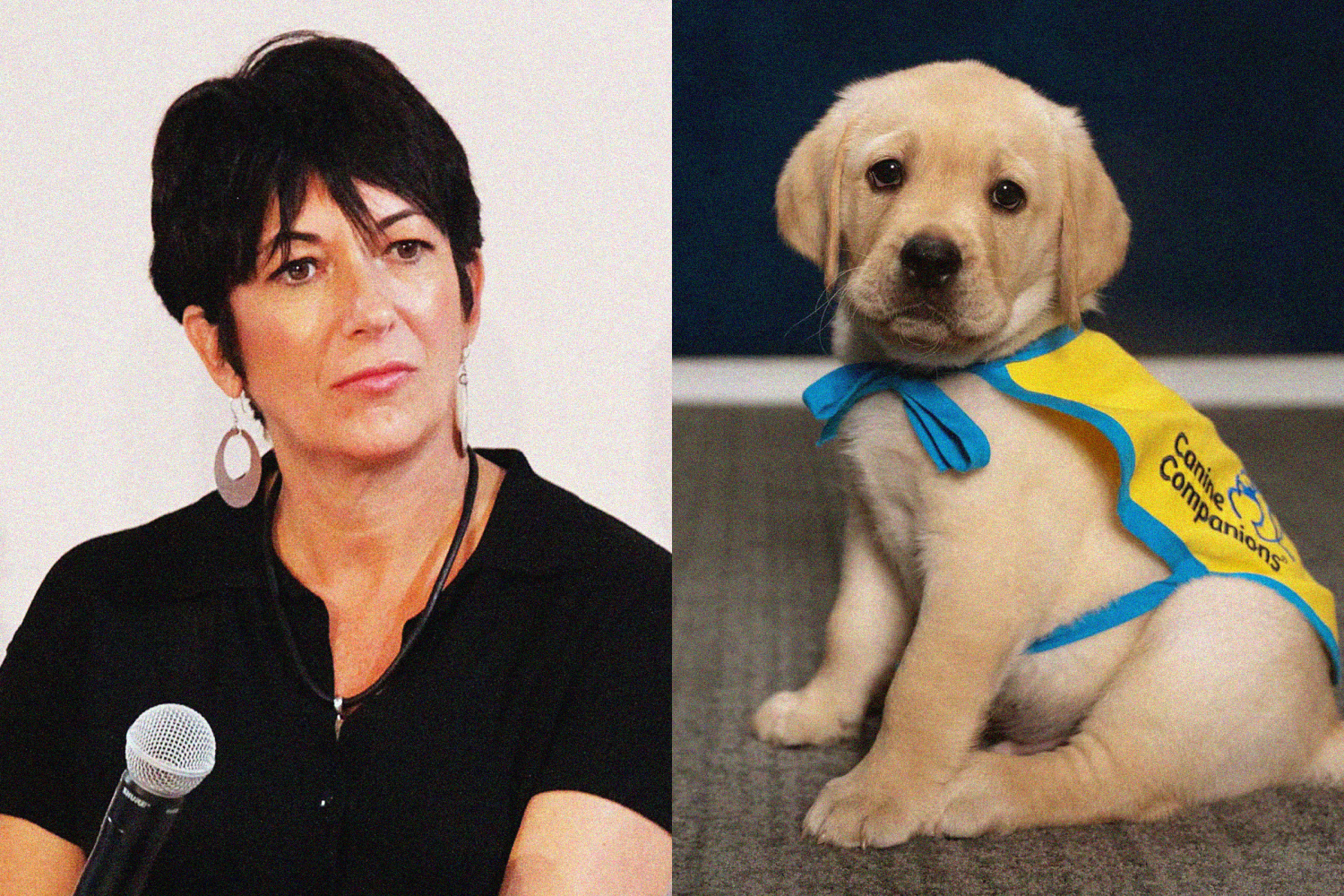The Bureau of Prisons has turned down a request from Ghislaine Maxwell, who is serving time for sex offenses, to join a dog training program while imprisoned. Maxwell is presently fulfilling a 20-year sentence at the low-security Federal Correctional Institution Tallahassee in Florida and wanted to engage in a program that connects inmates with service dogs being trained.
Correctional officials determined the high-profile inmate failed to meet eligibility requirements for the specialized rehabilitation initiative. The denial comes amid ongoing scrutiny of Maxwell’s prison conditions following her 2021 conviction for sex trafficking and other charges related to Jeffrey Epstein’s abuse network.
Prison administrators cited multiple factors in their decision, including the nature of Maxwell’s offenses and security considerations. The service dog program typically selects participants convicted of non-violent crimes who demonstrate exemplary behavior and show rehabilitation potential. Correctional psychologists also evaluate candidates for emotional stability and ability to handle the responsibilities of animal care.
The denied appeal has sparked renewed discussions regarding correctional rehabilitation initiatives and their availability to well-known criminals. Proponents believe these programs are beneficial to both the incarcerated individuals and the community, while detractors express doubts about whether infamous prisoners should be eligible for benefits that could enhance their living conditions while in jail.
Maxwell’s defense team portrayed the dog training initiative as therapeutic and practical for skill development. They contended that this organized program might assist their client in cultivating empathy and acquiring skills beneficial for eventual community reentry. Organizations focused on animal welfare, which usually advocate for prison dog training programs, have stayed impartial on this matter, highlighting their commitment to the dogs’ education rather than the choice of participants.
The Tallahassee establishment accommodates around 700 female inmates under minimum security and provides several educational and vocational courses. Although it is not regarded as a “country club” prison, its dormitory-like living arrangements and leisure facilities are quite different from those in higher-security prisons. The organization’s program for training service dogs is one of the more popular options for rehabilitation available at the facility.
Legal experts note that federal prisons maintain wide discretion in program participation decisions, particularly for inmates whose notoriety might bring unwanted attention to institutional operations. The Bureau of Prisons has historically limited media access and public discussion of specific inmates’ daily routines and activities.
The recent update takes place while Maxwell proceeds with the appeal of her conviction. Her attorneys have lately submitted appeals disputing both the decision and her detention environment, although experts in law predict minimal chances for a favorable outcome. The rejection of the service dog initiative could influence forthcoming grievances regarding her conditions while imprisoned.
The case highlights broader questions about rehabilitation versus punishment in federal corrections. While progressive penology emphasizes preparing inmates for eventual release, high-profile cases often spark debates about appropriate incarceration standards. The Bureau of Prisons must balance these competing philosophies while maintaining institutional security and public confidence.
Actualmente, Maxwell sigue sin formar parte del programa para perros, cumpliendo su condena de acuerdo con las rutinas y beneficios estándar que ofrece la instalación en Florida. Los funcionarios de la prisión recalcan que todos los reclusos tienen acceso a servicios educativos básicos y de asesoramiento, independientemente de su participación en estos programas. La decisión subraya que, incluso en instituciones de baja seguridad, ciertas oportunidades dependen de criterios oficiales y de la discreción administrativa.
While Maxwell’s appeal process carries on, it’s anticipated that there will be more detailed examination of her experiences while incarcerated. The denial of her access to a service dog program could be one of several administrative actions under review as her case advances legally. The results might impact the way correctional institutions deal with similar petitions from prominent prisoners going forward.



